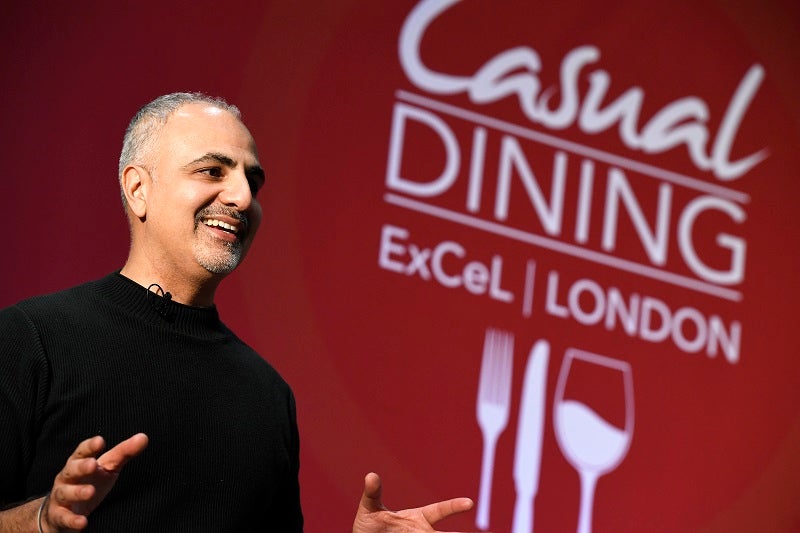
Trends Shaping the Future of Casual Dining
Earlier this week, consultants CGA and AlixPartners reported that the number of casual dining restaurants in the UK had fallen for the first time in nine years in 2018.
With mounting concerns over food costs, the implications of Brexit, and overcapacity in the restaurant sector as a whole, casual dining and quick-serve restaurants are expected to face increased pressure in 2019.
Verdict Foodservice asked exhibitors at this year’s Casual Dining event – held at London’s ExCel centre at the end of February – to answer the same, simple question:
What are the biggest challenges facing the casual dining sector in 2019?
Simon Bernstein, Director, The Foodfellas – a supplier of high-quality food to casual dining and foodservice markets in Europe.
“Obviously, Brexit is the uncertainty, especially with an importer because you’ve got the situation with the docks – you don’t know whether they are going to close. Then you’ve got the volatility of the euro and the dollar.
“You’ve got a lot of casual dining change. Because the rents are so high on a lot of the properties, restaurants are just closing down. The strongest ones are going to survive. As a business, what we have to do is adapt to the market. If things get priced out of the market, restaurants will just take them off their menu – that’s the problem.”
Denise Jones, Operations Manager at AIR Hospitality – a trade organisation representing independent restaurants in the UK.
“We had an event the other day about Brexit being around the corner and the impact on the cost of food coming into the country. There was a fish supplier there that said the majority of fish fished around the UK is exported, and this is obviously due to the Brexit issue. (We’ll suddenly have more supplies of that fish that isn’t exported coming to the UK, so that’s a positive).
“And of course, staffing is a big thing. A lot of staff are European so restaurants are going to lose a lot of staff because of [Brexit].”
Guy Parker, PR Director for Creation ADM and representative of CEDA – a trade association for design and equipment specialists across foodservice, catering and hospitality.
“Everybody’s talking about recruitment – not just of serving staff, but across the whole industry. Getting good quality engineers, for example. We’re starting an initiative to give people leaving the armed forces opportunities to become service engineers because their skills tend to match up well with engineering type roles. I think that’s probably the big challenge we are addressing at the moment – getting the right talent into the roles that are available.
“Our members and customers do have engineering roles available now, but I know some of them really struggle to attract the right quality of people. We’re also looking at starting our own apprenticeship standards for the design and build side of the industry.”
Daniel Slowe, Co-founder and Chief Product Officer, Quorso – creator of a digital operations management platform that helps restaurants boost profits.
“From the Quorso point of view, the biggest challenge facing the casual dining sector in 2019 is the temptation to avoid risk. Under the kind of pressure we’re facing now, people fall back on traditional ways of working.
“But restaurants and pubs need to embrace innovation – not shy away from it. Take the leaps required to keep customers coming in through the door. Make room for people to try new things. Scale what works.”
Andy Walker, Marketing Director, Yumpingo – an intelligence specialist that provides a data-driven menu development platform to restaurants.
“It’s definitely a tough market for a whole series of reasons. In a market like this, casual dining restaurants really need to know who they are and what they stand for and how they can really make that sort of positioning work for them.
“A lot of what we are doing is really allowing [restaurants] to understand what is it they are good at, how they make that the core of what they project, and therefore have success. I think when a restaurant isn’t too sure of that, they have lots of different problems. Irrespective of the market around it, that’s always the case, but it’s becoming extremely important at the moment.”
Frank Bartlett, Sales Director, Cawston Press – an award-winning provider of sparkling soft drinks.
“Coming at it from the soft drinks point of view, they are quite often bolted onto the end of the menu development, and too often [restaurants] might use the sort of ‘usual suspects’, e.g. Coke or the Britvic-led drinks.
“I think with people drinking less alcohol and becoming more discerning about what they put in their bodies, [restaurants] should pay more attention to the quality of the soft drinks they offer. Helping people understand what soft drinks are available from the point of purchase is really important, and also arguably it gives the casual dining sector to drive a bit of value as well.”



